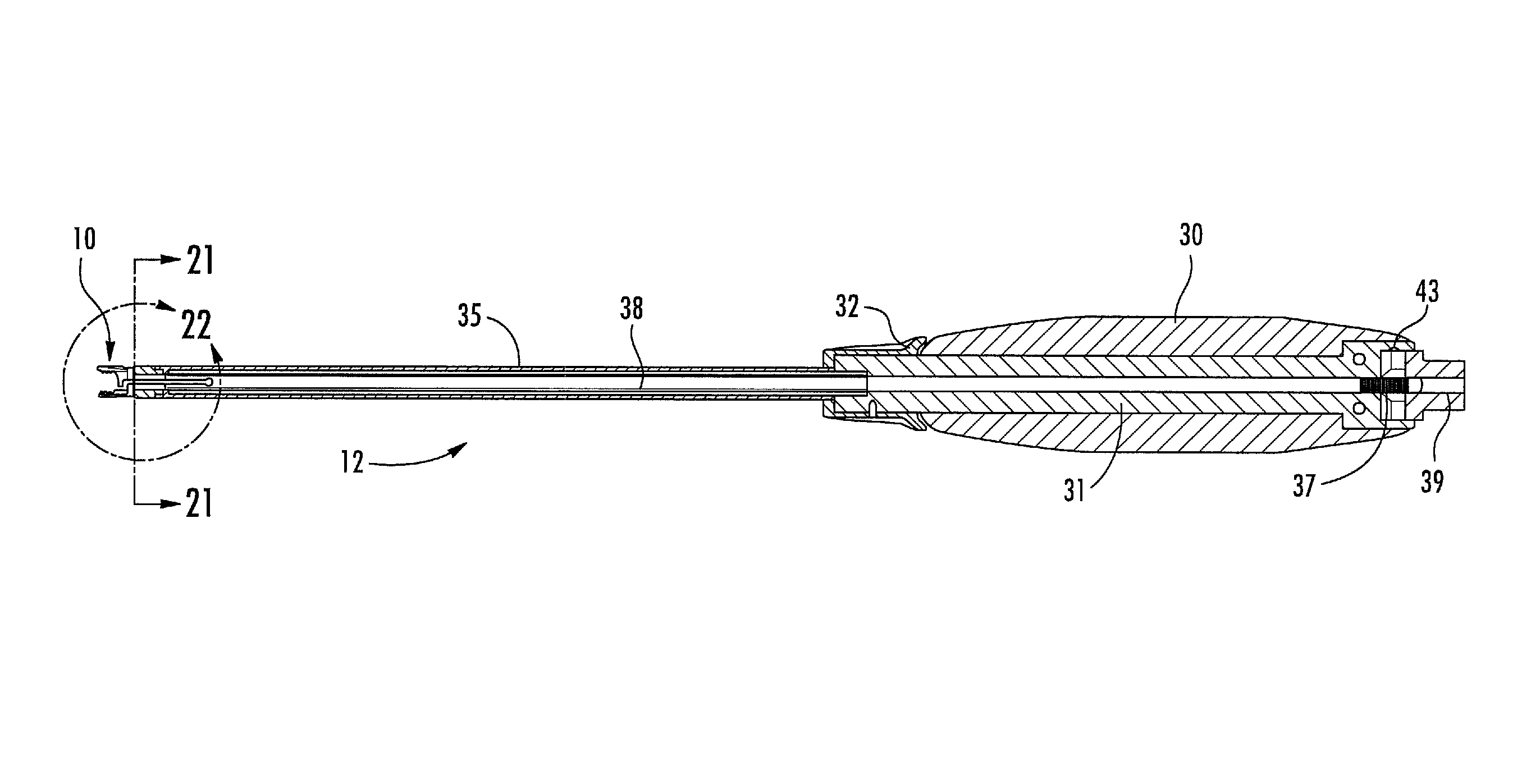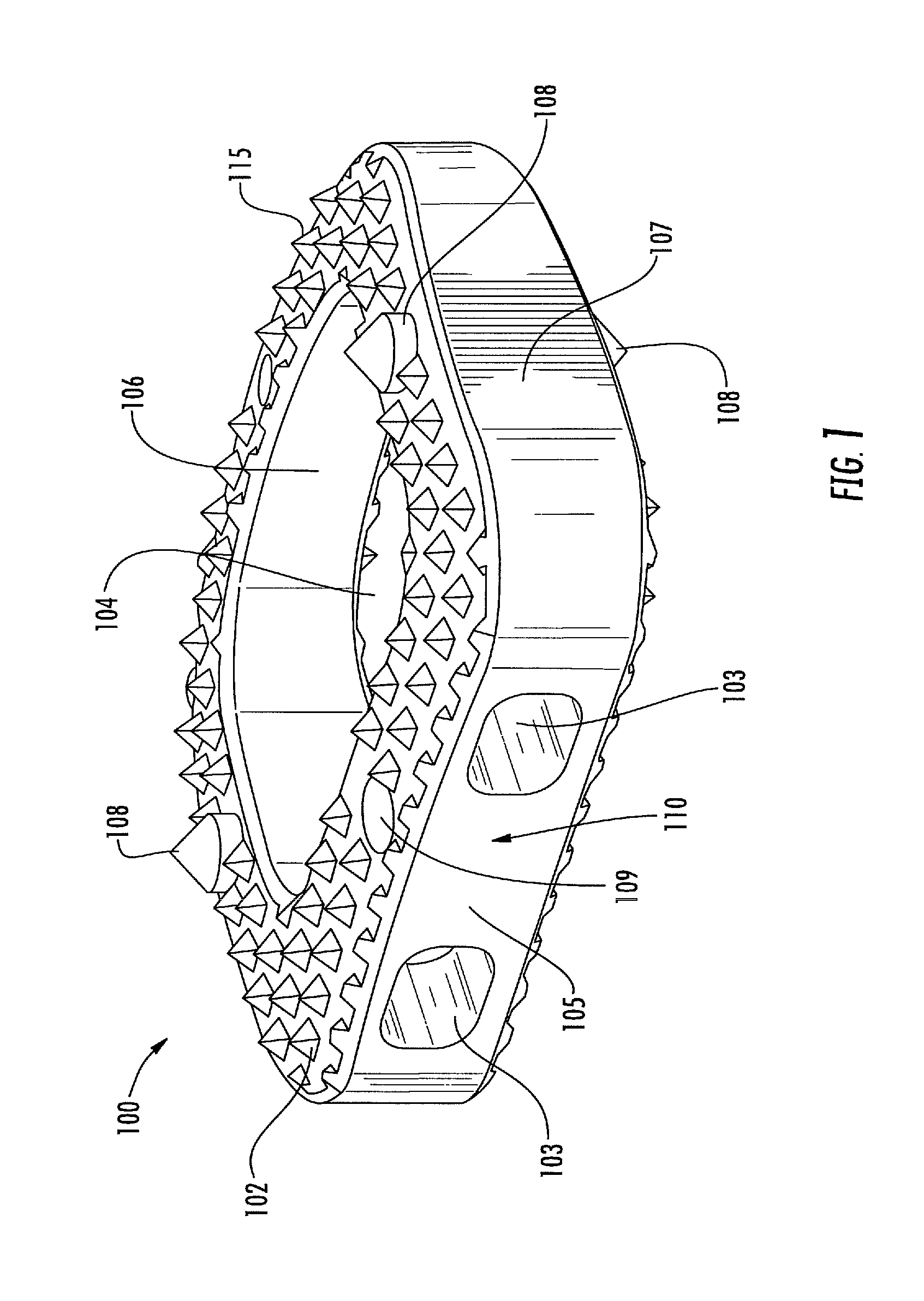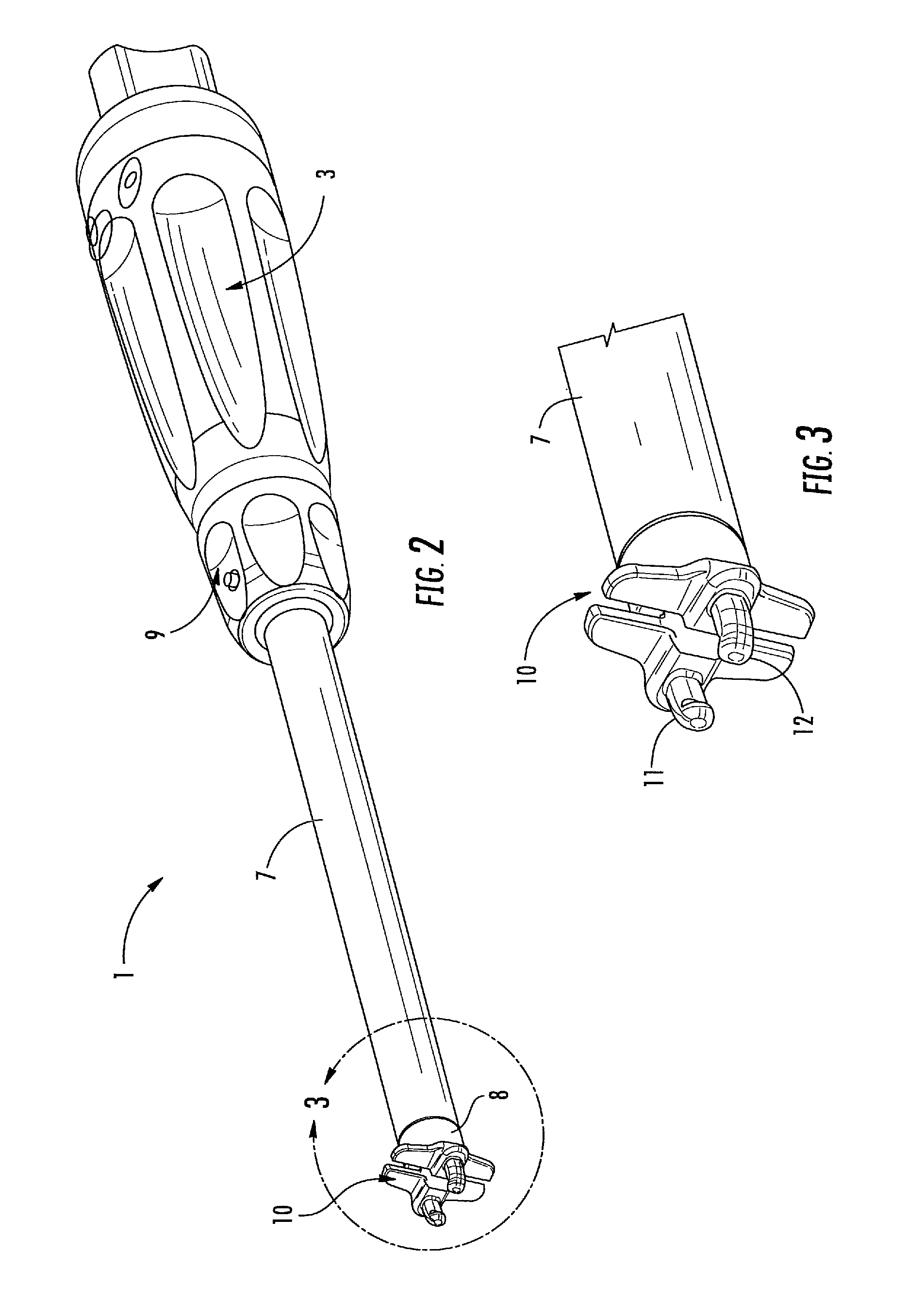Instrument for positioning an intervertebral implant for the fusion between two vertebral bodies of a vertebral column
a technology of intervertebral implants and vertebral columns, which is applied in the field of instruments for positioning intervertebral implants for fusion between vertebral bodies of vertebral columns, can solve the problems of inability to engage instruments in-situ, tissue damage, and inability to be as simple, and achieve the effect of improving the gripping action
- Summary
- Abstract
- Description
- Claims
- Application Information
AI Technical Summary
Benefits of technology
Problems solved by technology
Method used
Image
Examples
Embodiment Construction
[0047]With reference to the drawing figures, 100 is globally shown as an intervertebral implant to be positioned with the instrument 1 of the present invention for permitting the fusion between two vertebral bodies of a vertebral column. With reference to FIG. 1, the structure of the implant 100 is disclosed to allow a better understanding of its use and how the instrument 1 is suitable to grip such an implant 100 or other implants of similar use.
[0048]The implant 100 has been specifically realized for allowing vertebral operations according to the requirement of the modern Minimally Invasive Surgery. The implant 100 is mainly dedicated to the use in cervical intervertebral surgery, however, nothing prevents that it may be adopted in other surgery techniques, such as PLIF or ALIF.
[0049]The implant 100 has a main body 102 realized with a biocompatible radiolucent synthetic material, for example, a Polyetheretherketone (PEEK) structure having a favorable modulus of elasticity. The bod...
PUM
 Login to View More
Login to View More Abstract
Description
Claims
Application Information
 Login to View More
Login to View More - R&D
- Intellectual Property
- Life Sciences
- Materials
- Tech Scout
- Unparalleled Data Quality
- Higher Quality Content
- 60% Fewer Hallucinations
Browse by: Latest US Patents, China's latest patents, Technical Efficacy Thesaurus, Application Domain, Technology Topic, Popular Technical Reports.
© 2025 PatSnap. All rights reserved.Legal|Privacy policy|Modern Slavery Act Transparency Statement|Sitemap|About US| Contact US: help@patsnap.com



